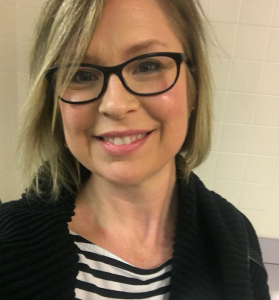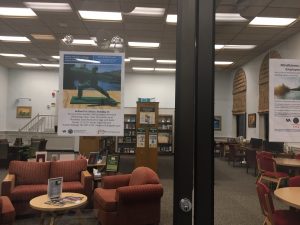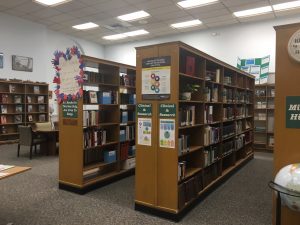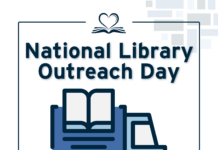The Massachusetts Library System received an inquiry in our continuing education survey about what hospital and medical librarians do. In response, I’m pleased to bring you an interview with Sarah Carnes, the Clinical Librarian at the Bedford VA Medical Center. In this interview, she will share the numerous ways she supports clinical research and contributes to improving the patient experience.

What services do you provide to support the wide-ranging needs of Bedford VA Medical Center’s staff?
As the Clinical Librarian at the Bedford VA Medical Center, I provide support to staff working in a wide variety of disciplines. Clinical and research staff must be current on information in order to conduct evidence-based care and impactful research. The majority of our resources are available online in our Knowledge Library, our user-friendly online medical library platform. Staff also have access to these materials when offsite as many will conduct their in-depth reading outside of normal working hours.
Research shows that for all the convenience of electronic health records, telemedicine, and online medical libraries, there is not enough time in the day for providers to keep up with all the information they wish to access. Clinical librarians possess the expertise to mitigate the barriers between staff and the information they need. Staff request information or assistance via email, phone or in-person. Some of the requests are fulfilled relatively quickly, such as a request for the full-text of an article or information on how to set up a literature alert or offsite account. Others take a great deal more time, such as complex literature searches for differential diagnoses or for systematic reviews–which might take anywhere between three to nine hours. Over the course of the last year and a half, I have completed over 600 searches and reference questions and I estimate that saved staff approximately 450 hours.
 In addition to searches, I teach staff how to use our resources. This can take as little as five minutes over the phone and computer or two hours during my monthly intensive class. Since November 2017, I’ve conducted more than 60 training sessions of varying staff groups, including residents, trainees, nursing students, Primary Care, Geriatrics, and Research at Bedford and our Community Based Outpatient Clinics. These sessions were presented in various modes, including at the computer room during the monthly in-depth class and at staff deskside for individual training. I also made 32 presentations to staff groups and New Employee Orientations to promote awareness and use of resources and services. All told, these classes and presentations were given to over 500 individuals.
In addition to searches, I teach staff how to use our resources. This can take as little as five minutes over the phone and computer or two hours during my monthly intensive class. Since November 2017, I’ve conducted more than 60 training sessions of varying staff groups, including residents, trainees, nursing students, Primary Care, Geriatrics, and Research at Bedford and our Community Based Outpatient Clinics. These sessions were presented in various modes, including at the computer room during the monthly in-depth class and at staff deskside for individual training. I also made 32 presentations to staff groups and New Employee Orientations to promote awareness and use of resources and services. All told, these classes and presentations were given to over 500 individuals.
I continually communicate with staff through staff presentations, New Employee Orientation, emails and a physical presence. I also have a page on my medical center’s website with a summary of services, program calendar, and contact information. I also support medical resident rounding, resident Grand Rounds training, and committees such as the Clinical Practice Committee, the Long Term Care Committee, the Veteran-Centered-Care Committee, and the Shared Governance Executive Council. I’m also the co-chair of the Shared Governance: Professional Development Council.
 My largest improvement project to date has been the support I provide directly to Veterans. We reorganized our process so that we increased access by 400% at the library and through deliveries to inpatients. Everything non-medical is donated to us so those items are now free to keep so that there is no burden on anyone to return items—and so that the library doesn’t get too crowded with all of the donations! We provide not only books and magazines, but also DVDs, CDs, audiobooks, consumer health information and provide atypical items such as blankets and reading glasses. We have incorporated materials and equipment that improve access for people with vision, physical, and cognitive challenges, including digital audio-book readers from the National Library Service and the Perkins Library, a large magnifier, a document scanner with audio, and a large screen computer with audio and visual tools.
My largest improvement project to date has been the support I provide directly to Veterans. We reorganized our process so that we increased access by 400% at the library and through deliveries to inpatients. Everything non-medical is donated to us so those items are now free to keep so that there is no burden on anyone to return items—and so that the library doesn’t get too crowded with all of the donations! We provide not only books and magazines, but also DVDs, CDs, audiobooks, consumer health information and provide atypical items such as blankets and reading glasses. We have incorporated materials and equipment that improve access for people with vision, physical, and cognitive challenges, including digital audio-book readers from the National Library Service and the Perkins Library, a large magnifier, a document scanner with audio, and a large screen computer with audio and visual tools.
In addition to the room deliveries, I have a volunteer who reads to individual and groups of Veterans who do not want to or cannot use an audiobook reader. I also have one volunteer who manages a special interest group on Civil War History. A retired art teacher, she brings her knowledge of curriculum design and programming—along with her creativity and use of visual resources—to create a high-quality program.
One of my most recent projects has been to incorporate iPads into library services and patient care. Several of our staff and Veterans use these to access the internet, the National Library Service materials, consumer health information and tools to enhance quality of life, such as meditation apps. I’ve been working with our Recreation Therapy, Occupational Therapy, Speech and Pathology, Social Work, Nursing, Psychology, Chaplains, and Medical departments to incorporate these devices into their programming.
What parts of your job do you find most satisfying?
I’m most fulfilled when I learn from a staff member or a Veteran that the materials I have provided them have improved patient care and Patient Experience. I often get the chance to provide staff the information they need to diagnose and treat a patient and I always appreciate when staff tell me that my work is useful to them.
One of my favorite experiences is when a staff member or Veteran tells me how much the library means to them as a welcoming location or a way for them to access materials previously unavailable to them. Of particular note is the Veteran who, because of his dyslexia, had read only one book in his entire life—and hated it. He is vision impaired and did not know about audiobooks. Since we introduced him to an digital audiobook reader, he is a top patron and even has a history audiobook club that meets weekly!
What advice would you give to a student interested to pursue a career in health sciences librarianship?
If your school provides classes in health information resources and data curation, take them! Also, reach out to a medical librarian in academia, healthcare, and other settings to learn more about what they do. If an opportunity is available to volunteer or intern, this is a great way to experience medical librarianship in a more in-depth fashion. Also, check out the classes available on the NNLM website.
What do you see as important trends and opportunities for the future of medical librarianship?
Data is critical. NIH and the National Library of Medicine, research and academic institutions, and companies connected to healthcare and pharmaceutical research are all very interested in how to better use, reuse, and share data to increase the impact of research monies and efforts. Librarians can increase their value and impact by being well-versed in data management, curation, reuse, and access.
Any other thoughts you would like to share?
Medical librarianship is an incredibly fulfilling career field, but even if you don’t choose to go that route, get to know a medical librarian. They can be a very useful resource for you and your patrons!
Interview with Sarah Carnes, Clinical Librarian, VAMC Bedford
Interviewed by Michelle Eberle, Consultant
Note from Michelle: If you would like learn more about medical librarians, check out this article in the New England Journal of Medicine: The 21st Century Medical Librarian: More Vital than Ever.

